Table of Contents
The south India model
- Kerala has over 800 Covid cases, yet so far only 4 have died.
- Mortality in other states is far higher.
- For example Gujarat, with one of the highest mortality rates in India is reporting over 800 deaths with over 13,000 cases.
- Uttar Pradesh chief minister Yogi Adityanath mocked Kerala’s healthcare record and Prime Minister Narendra Modi described infant mortality among Kerala adivasis as worse than Somalia.
- But today the internationally acclaimed Kerala model has delivered better than the trumpeted Gujarat model.
- It’s not just Kerala. South India as a whole is managing the pandemic more deftly than the north.
- In Tamil Nadu cases have risen sharply, yet mortality is relatively under control.
- In Andhra Pradesh, under 100 have lost lives and Karnataka – another strong Covid fighter – is reporting under 50 fatalities with over 2,000 cases.
- In overall healthcare performance, a 2019 World Bank Niti Aayog report shows Kerala and TN rank highest, while UP, Rajasthan and Bihar are at the bottom.
- Well known fact: south India model of governance has always delivered better healthcare and education.
- Stable political competition between parties
- An assertive citizenry
- If a political party monopolises public office for too long, it has little incentive to deliver welfare.
- In north Indian states, a herd mentality among voters often results in massive mandates for one or the other party, which then remains in office for decades.
- Both monopoly and fragmentation acted as barriers to governance in the north.
- In south India, no one party enjoys a monopoly.
- Political competition means there’s an incentive on the part of governments to deliver.
- Peaceful political competition has opened up space for citizens’ participation and spurred civic activism on the ground.
- Empowered citizens are in a position to demand basic rights like healthcare and education.
- In Gujarat, the Ahmedabad municipal commissioner was recently transferred reportedly for aggressive Covid testing and pushing up Gujarat’s numbers.
- Andhra and TN by contrast have encouraged aggressive testing.
- Forceful citizens keep governments on their toes.
- The need to deliver also means that governance is relatively immune from religious hate and divisiveness.
Covid has woken the world up to the threat that China poses
- China has never faced as dire an image problem as it currently does.
- Covid-19 has suddenly woken up much of the world to the threat that the Chinese regime poses to humanity.
- China has been taking the world for a ride for far too long.
- Supreme leader Xi Jinping began disregarding Deng Xiaoping’s wily advice to “hide your capacities and bide your time.
- A blunt instrument called Donald Trump came to power in the US.
- A virus jumped from bat to man.
- Despite initial furious opposition from China, 116 countries have passed a motion for an independent investigation into the origins of the coronavirus epidemic.
- The World Health Organization’s (WHO) reputation has taken a beating.
- Xi’s wife Peng Liyuan is one of the WHO’s “goodwill ambassadors“.
- A singer-superstar entirely created by the People’s Liberation Army (PLA), she now holds the rank of major general in the PLA.
- Vociferous denials
- Noble global health player
- Chinese state-backed companies had started stockpiling medical supplies—surgical masks, thermometers, antibacterial wipes, gloves, hand sanitizers—quietly from many countries soon after Wuhan was struck by the virus and the world was still in the dark about the seriousness of the threat.
- China tried to spread a rumour that the pathogen had actually been planted in China by the US.
- Australia has been one of the prime movers of the call for the investigation, Beijing banned
- beef imports from four Australian producers
- Imposed 80% tariffs on Australian barley
- Threatening to take similar action on the country’s wine and dairy products
- Chinese troops have escalated tensions at the Sino-Indian border in Ladakh and north Sikkim.
- Nepal’s communist Prime Minister K.P. Oli, on what seems like Beijing’s instigation.
For farms and farmers
- The Rajiv Gandhi Kisan Nyay Yojana launched by Chhattisgarh last week aims to supplement the income of the State’s 18 lakh rice, maize and sugarcane farmers by ₹10,000 to ₹13,000 per acre, through direct cash transfers.
- Besides the Centre’s PM-KISAN scheme that provides ₹6,000 to farm families owning less than five acres of land, Telangana, Odisha and Andhra Pradesh have similar cash transfer programmes for farmers.
- For balancing the interests of the consumer and the farmer, India has an extensive MSP regime which works in combination with the PDS.
- But the efficiency of neither MSP procurements nor the PDS is uniform across the country.
- The Centre says it fixes MSPs at 1.5 times the cost of production for farmers, but this calculation is not free of controversy.
- Though food is a universal necessity, those who produce it languish at the bottom of the economic pyramid.
- These income support schemes target land owners, and bypass tenants and labourers.
- Chhattisgarh is now designing a cash transfer scheme for landless labourers.
- The food supply chain crisis in the U.S. is instructive.
- Considered supremely efficient, it ended up with wasted produce and unmet demand as the pandemic erupted.
- India’s agricultural management must take into account such fresh learning from the pandemic, and vulnerabilities arising out of supply chain-dependent food security.
- The list of pre-existing morbidities in the agriculture sector is also long, including messy land records, unscientific and unsustainable crop patterns, market linkages that make the farmers vulnerable to exploitation by officials and middlemen, inadequate irrigation, adoption of technology, conflict with wildlife, and changing weather and climate patterns.
Danger in the air
- Catastrophic end to PK-8303.
- Airbus A320-214 is an aircraft type that is one of aviation’s reliable and modern workhorses.
- Air safety commentators point in a relevant direction.
- Though authorities in Pakistan and PIA, an established flag carrier, have detailed the plane’s technical, flight and maintenance history, there is a swirl around the operator’s not-so-impressive air safety record.
- Experts highlight a key phrase: ‘no half measures’.
- Densely populated neighbourhood lining the airport.
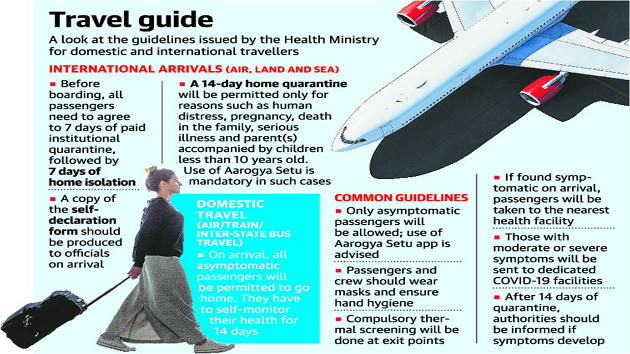
No answers yet for Somalia
- The June 8 public hearings at the International Court of Justice (ICJ) on Somalia’s maritime dispute with Kenya will be deferred yet again.
- Somalia seeks to restore universal suffrage after five decades in upcoming general election.
- Under a 2009 Memorandum of Understanding, each granted the other no objection to presenting separate submissions to the UN Commission on the Limits of the Continental Shelf (CLCS) concerning the outer limits of the continental shelf beyond 200 nautical miles.
- The parties also committed to finding a settlement in accordance with international law on the basis of the CLCS’s recommendations.
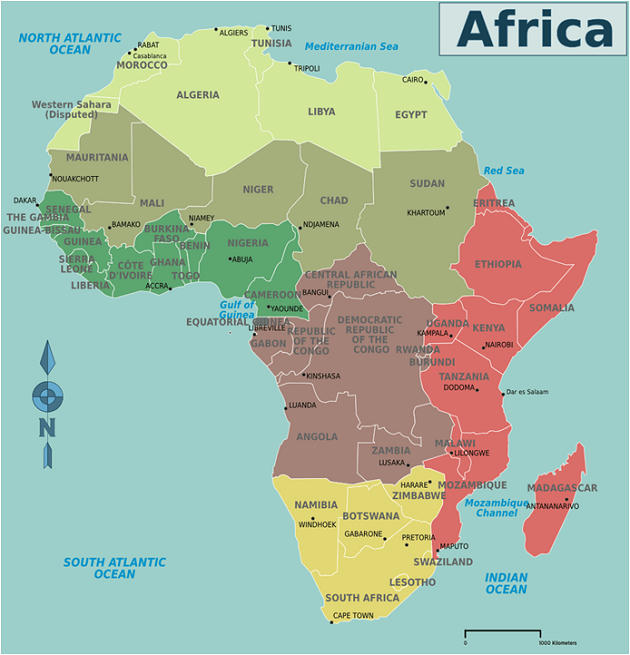
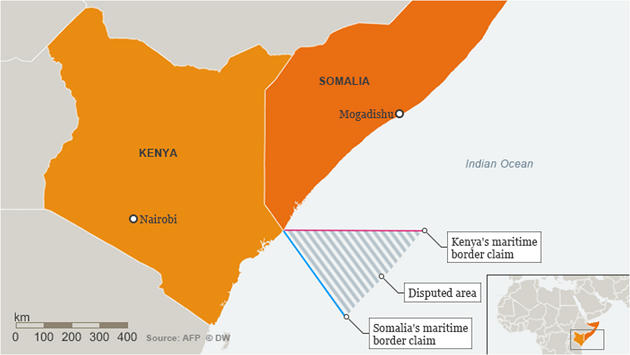
- But friction intensified following Kenya’s 2011 despatch of troops into Somalia, ostensibly to counter the al-Qaeda affiliate, al-Shabab.
- Kenya’s backing for the semi-autonomous Jubaland region has also caused consternation in Somalia.
- Given the diminishing prospects of a mutual compromise on the dispute, Somalia petitioned the ICJ in 2014.
- Somalia won a symbolic victory of sorts in February 2017.
- In a diplomatic row last year, Kenya recalled its ambassador and expelled Somalia’s envoy, accusing the Somalian government of illegally auctioning oil blocks in the disputed waters.
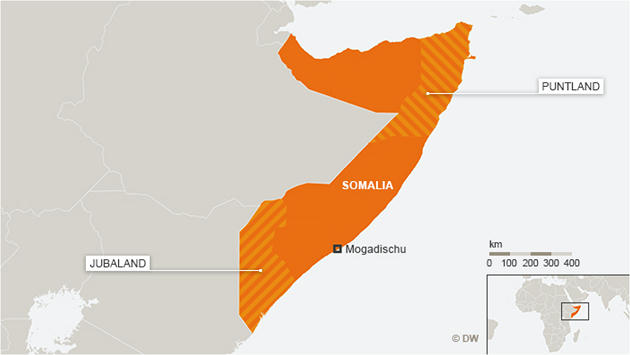
- In parallel, the African Union has intervened to find a settlement out of court via a mediator.
- As regards the judicial proceedings at The Hague, a decision is expected on the public hearings, postponed twice last year, scheduled to commence next month.
- Somalia has systematically suppressed a free press that is vital to a vibrant democracy.
- In the backdrop of such systemic constraints and the current pandemic, the practical difficulties of implementing universal suffrage would be formidable.
Failing to perform as a constitutional court
- The most acute problem is faced by migrant labourers: they have no work, no source of income, no access to basic necessities, no quality testing facilities, no protective gear, and no means to reach home.
- The saddest is the apathy shown by the institutions meant to look out for their interests.
- Supreme Court, has failed to satisfactorily acknowledge that the fundamental rights of migrant labourers have been violated, and ignored these workers when they most needed protection.
- In this lockdown, enough and more evidence points to fundamental rights of citizens having been grossly violated, and especially those of vulnerable populations like migrant labourers.
- But instead of taking on petitions questioning the situation, the Supreme Court has remained ensconced in its ivory tower, refusing to admit these petitions or adjourning them.
- Only the Supreme Court can enforce accountability of the Centre in these matters.
- In rejecting or adjourning these petitions, the Court has made several questionable remarks.
- Court seems to have forgotten that the Constitution does not fall silent in times of crises.
- Who will guarantee safe transport for the return of migrant workers?
- When in quarantine, who will grant them a sustenance allowance, or look after their health issues, or look after needs besides food?
- Who will ensure job loss compensation? Who will conduct regular and frequent testing?
- Similarly, nothing prevents the Court from monitoring the situation itself directly, especially regarding the state’s obligations: it could easily direct bureaucrats to collect empirical data on the ground, as it has done before.
- The Court is not merely rejecting or adjourning these petitions; it is actively dissuading petitioners from approaching the courts for redress because the Court determines that it is the executive’s responsibility.
- There is the matter of how the Court is treating such public interest litigations.
- PILs are a specific instrument designed to ensure the protection of the rights of the poor, downtrodden and vulnerable, and “any member of the public” can seek appropriate directions on their behalf.
- PILs, in fact, ought to be a collaborative effort between the court and all the parties, where everyone comes together in seeking a resolution to the problem.
- Today, we find ourselves with a Supreme Court that has time for a billion-dollar cricket administration, or the grievances of a high-profile journalist, while studiously ignoring the real plight of millions of migrants, who do not have either the money or the profile to compete for precious judicial time with other litigants.
- At least four High Courts (Karnataka, Madras, Andhra Pradesh and Gujarat) have started asking questions about migrant rights.
- This is almost a replay of what happened during Emergency, where High Courts boldly stood up and recognised violations, but were overruled eventually by the Supreme Court.
- In such times, High Courts come across as islands of rationality, courage and compassion.
- However, in truth, the subject matter of migration is inherently an inter-State issue, not an intra-State one.
- This is a time when the apex court must intervene and monitor the calamitous situation, instead of taking the government’s word as gospel.
NEWS
- COVID-19 cases: India now in top 10
- India on Sunday reported the highest single-day spike so far of 7,097 COVID-19 cases, taking the overall tally to 1,38,482, according to reports from the State Health Departments.
- The number of active cases stood at 76,858, while 57,605 people have recovered.
- The death toll crossed 4,000, with 150 new fatalities.
- Special train to northeast attacked in Bihar
- In two incidents in Bihar within a span of 24 hours, a special train from Haryana, carrying some 1,300 people home to the northeastern States, was attacked and 12 passengers on a bus from Madhya Pradesh were abused and threatened.
- The journey for the returnees from Haryana was incident-free until their train stopped at Danapur in Bihar early on Sunday morning.
- Trouble started when the passengers, mostly young persons from northeastern States, refused to let several people waiting on the platform into the train.
- No troops detained by China: Army
- The Army on Sunday “categorically denied” reports that Indian patrol teams had been detained by Chinese troops along the Line of Actual Control (LAC) in eastern Ladakh, during the current standoff.
- Centre seeks efficacy of Ayurveda
- The Union Health Ministry on Sunday sought results of COVID-19 treatment using Ayurvedic medicines.
- Patanjali proposes drug trial in Indore
- A day before Baba Ramdev told Madhya Pradesh Chief Minister Shivraj Singh Chouhan that ayurvedic medicines had given “very good results” on COVID-19 patients, the research wing of his firm Patanjali had given a proposal to a government medical college to conduct clinical trials.
Download Free PDF – Daily Hindu Editorial Analysis

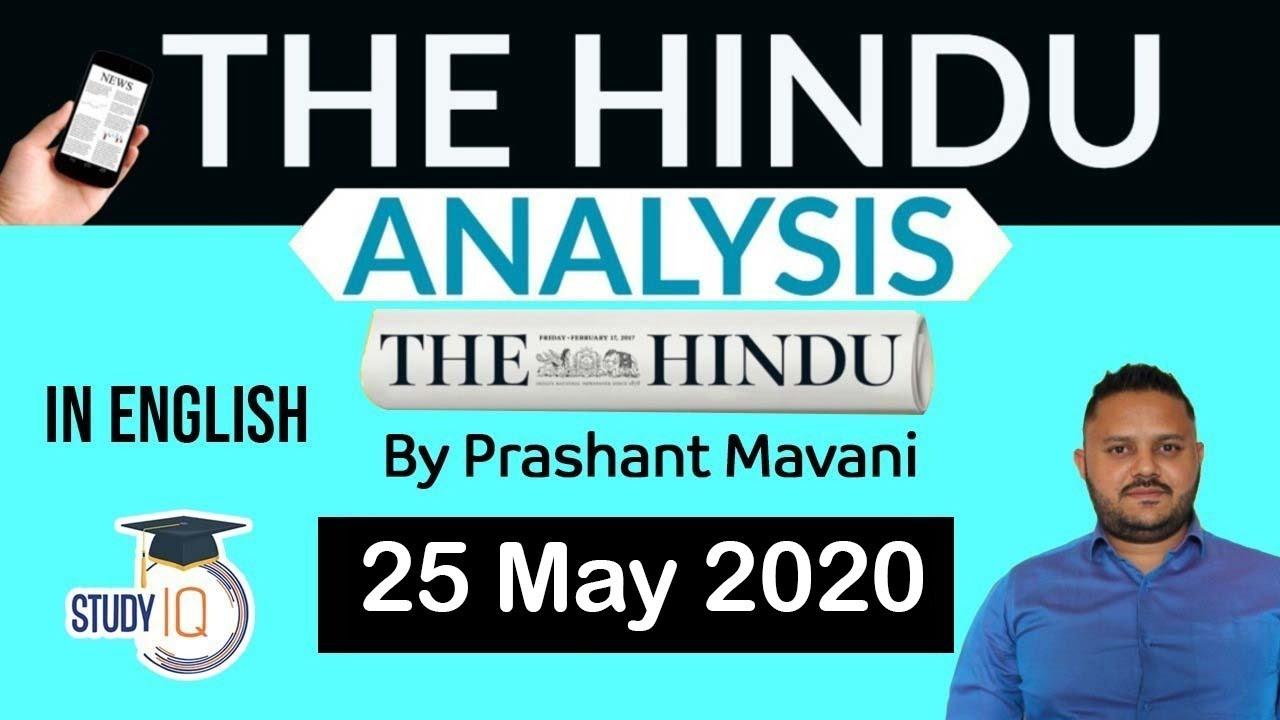




















 WhatsApp
WhatsApp